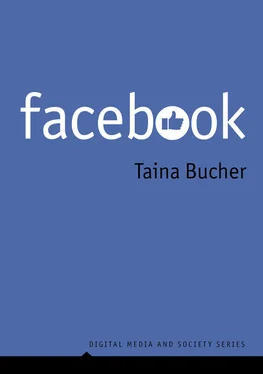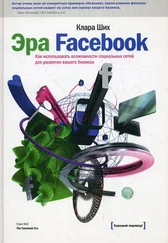Facebook fully entered Myanmar around 2014. People had been using Facebook well before that, but they were only a tiny fraction of the population, early adopters and those who could afford a SIM card. Up until then, the military junta had imposed artificial caps on access to smartphones and SIM cards. In 2014, the cost of a SIM card suddenly dropped from a staggering 1500 GBP to 0.7 GBP. Mobile shops were swamped and the telecom industry expanded from one state-controlled operator to several new competitors, including the Norwegian Telenor. The thing you need to understand about Facebook, Nyan, a former employee of an international NGO that collaborated closely with the government and now funder of a local NGO, tells me, is that for most people in Myanmar, Facebook was introduced to them as a pre-installed app on their new mobile phones. Once the cost of SIM cards dropped, people went into one of the many mobile phone shops that had started to pop up all over the country to purchase a phone with a data plan. Most shop owners not only pre-installed Facebook and Viber, a messaging app, but also made sure they opened up a new Facebook account on the customer’s behalf. Because of the country’s restrictive communications policies and access to the internet, it wasn’t as if people knew how to use the internet, or even had a clear understanding of what the internet, or social network sites, were for. So it only made sense that shop owners had a stack of email addresses and pre-made Facebook accounts at the ready. Nyan says that there are many stories of people who got their new Facebook accounts already equipped with pre-installed friends, and in many cases celebrities and a collection of hot girls, so as to get their Facebook experience going from the very start. In Myanmar, for the millions of people who were able to buy a SIM card, Facebook was not a social network site, or even the internet, but something called Facebook, Nyan says. When talking about the role Facebook has played in Myanmar, about its role in the recent genocide and Facebook’s response or lack of response, Nyan says that there is one fundamental thing that Facebook needs to get right and understand. They act as if they are a social media company, but in Myanmar, Facebook is everything, Nyan says. Facebook is Facebook.
Writing a book about Facebook feels like writing a book about the internet. Too much to cover, too many developments, too many twists and turns, too much that is already history by tomorrow. Consider this book an incomplete and unfolding travel guide – a book that cannot be filed under any conventional category found in the travel book section. As a topological mapping of sorts, this book will necessarily provide a partial picture of Facebook. That is OK, even to be expected of a book of this nature. Just like the internet itself, the fact that Facebook is difficult to grasp doesn’t mean there isn’t a concrete origin, prevailing myths, dominant discourses, social histories, cultural contexts, politics, technical developments and imaginary futures. It’s all there and part of what makes Facebook Facebook.
In Chapter 1, I look at the framing of Facebook, both by the company itself, as well the discourses that surround it, especially as it pertains to Facebook’s early days. This chapter gives readers a sense of where Facebook came from, providing more grounds to the origin story started in this chapter. By analysing Mark Zuckerberg’s public statements, this chapter considers the discursive and rhetorical framing of Facebook and the prevailing metaphors used to define what Facebook is and should be. By situating an analysis of metaphors in the cultures and histories of the internet more broadly, this chapter shows how Facebook is very much built on techno-libertarian ideologies of communalism and hacking that have helped to spur Facebook’s culture of moving fast and breaking things.
Chapter 2explores Facebook as an infrastructure. Using two analytical figures – electric light and chairs – this chapter grapples with Facebook’s scale and relational qualities by way of an infrastructural reading. Using Zuckerberg’s own analogy between Facebook and the electric light as a starting point, I draw on science and technology studies and histories of electrical light to account for Facebook as a large technical system. Using the Like button and Open Graph as cases in point, this chapter makes the argument that even the most technical features contain a rich texture of economic principles, political forces and social concerns. Moreover, analysing one of Facebook’s most grandiose television ads, which compares chairs to Facebook, the metaphor of the chair is used to question what and whom Facebook is for.
Chapter 3considers Facebook sociality by situating questions of identity and friendships in a discussion of Facebook’s real name policy. Beginning from Facebook’s (early) identity as a social network site, this chapter looks at how networks became social and first had to be deanonymised. By way of a discussion of authenticity, the bulk of the chapter is concerned with the ways in which friendships have been strategically mobilized in the creation of Facebook’s business model. Ultimately this chapter shows how a foundational element of what makes Facebook, Facebook, is that it is ‘grounded in reality’.
In Chapter 4, I cover some historical and evolutionary grounds again. This chapter is dedicated to the mapping of Facebook’s techno-economic development in terms of its most significant business decisions and technical features. If Chapter 1provided an account of Facebook’s history in terms of its discursive and metaphorical work, and Chapter 2scaled up the discussion to the level of large technical systems and infrastructure, this chapter is concerned with the specific business decisions Facebook has made along the way and how those strategies have been implemented in specific features. The main objective of this chapter is to provide readers with a discussion of Facebook’s two main features, the News Feed and its algorithms. By examining how these features are modelled on notions of journalism and news, this chapter reveals the importance of not just understanding what the features are or do, but how they are made to signify to begin with.
Chapter 5examines Facebook as an advertising company. In this chapter, I argue that Facebook must be considered as a capitalist machine constituting and constituted by an ad-tech-surveillance complex. It provides readers with an overview of digital advertising and how the Web became a commercial space through the implementation of tracking technologies such as cookies, and how Facebook has built on these logics to create an enormous digital tracking and advertising infrastructure. Knowing more about the specifics of Facebook as an advertising company also serves to ground some of the discussions in the next chapter, as knowing what the economic rationales are and how they are technically implemented helps to ground the higher level ethical questions surrounding democracy and politics.
Chapter 6addresses the complicated and convoluted terrain of politics. While focusing on the intersections of Facebook and electoral politics and campaigning, the chapter makes a case for understanding Facebook politics in the widest possible way. Facebook politics is just as much about electoral politics, as it is also about protests, activism, regulation, technical artifacts, institutional structures, laws and the values in design. By combining a discussion of Facebook’s role in the growing landscape of digital behavioural advertising, with cases studies of the Cambridge Analytica scandal and the atrocities in Myanmar, this chapter investigates how Facebook’s design and business model help to shape a polluted information landscape. It ultimately shows how the politics of Facebook is concerned with its world-making power, of that which is allowed to take root, to evolve, and to take shape because of Facebook’s central position.
Читать дальше












